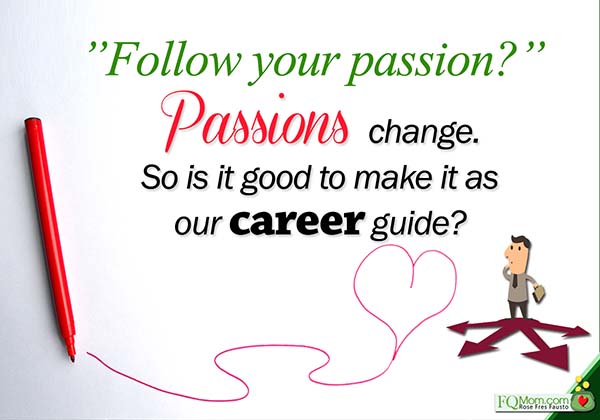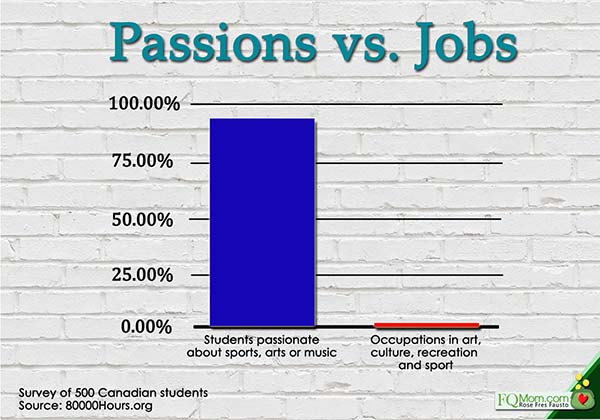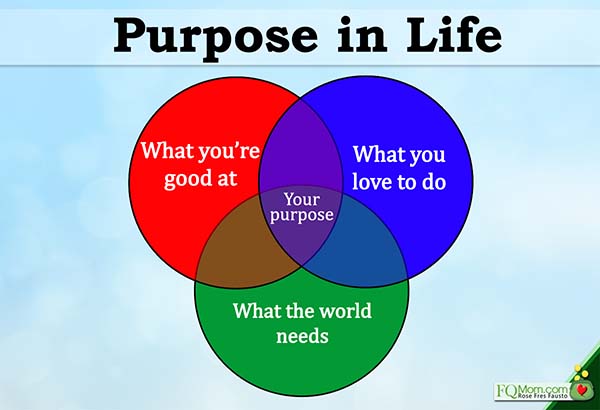Is ‘follow your passion’ a good career advice?


Because the world is always changing, and because we tend to swing from one extreme to another, we may end up getting lost in the interpretation of these well-meaning pieces of advice.
From “study hard, get good grades, find a good job,” we moved to “follow your passion” when it comes to career advice to the youth. Because the world is always changing, and because we tend to swing from one extreme to another, we may end up getting lost in the interpretation of these well-meaning pieces of advice.
We all went gaga over that awe inspiring commencement speech delivered by Steve Jobs at the Stanford University, “You’ve got to find what you love. The only way to do great work is to love what you do. If you haven't found it yet, keep looking. Don't settle. As with all matters of the heart, you'll know when you find it.” (Click link to watch speech)
Jobs narrated his life-long and inspiring career in his usual high impact fashion in 15 minutes. I am a big fan of Steve Jobs’ presentation style, but to apply the above lesson without considering his entire journey can prove to be dangerous to most kids starting their career. So let’s revisit this career advice usually phrased as “Follow your passion.”
Let’s define passion
The dictionary defines passion as a very powerful feeling; a strong and barely controllable emotion. In other words, it is something that can come in spurts of moments, but not necessarily sustainable.
From the above definition, it doesn’t seem rational to make something this flighty and volatile to be our guide in mapping one’s career.
Feelings and emotions change. So passions change. What we’re passionate about now may not be the same five years from now. So to follow the advice of look for/follow your passion and get a job that fulfills it may be a pretty unstable thing to do. Could this be the reason why the average stay of millennials in a job is a short 1.6 years?

Job matching problems
What more, in a survey among 500 Canadian students, they found out that there was a huge disparity between what they are passionate about and the number of jobs available. An overwhelming 90 percent of the students were passionate in sports, arts and music, but only 3 percent of available jobs were in these fields. So encouraging our kids to only get into a job that matches their passion is a sure way to high unemployment!

Some say that “follow your passion” is such an elitist career advice because it is okay for children of wealthy families who will not starve even if they don’t get a job, but not for those who have to earn a living right away. As I always advise to parents (both rich and poor), “Cut your children’s financial umbilical cord once they graduate from college.”
Passionate about vs. good at
Just because you’re passionate about something does not mean that you won’t suck at it. And sometimes, even if you try to improve on it, you don’t. Here is where knowing your strengths becomes important. I am a certified gallup strengths coach and one of the things that we do to help people find engagement in their jobs is to first help them know their inherent strengths. Focusing on and further honing their strengths, instead of spending too much time fretting on their weaknesses, is what leads to mastery.
So what do we do?
Given what we know about the perils of misinterpreting the career advice “follow your passion,” here are some pieces of advice from Benjamin Todd, executive director of 80000Hours.Org:
1. Explore. Go out because you can’t figure things out just by thinking of what you’re good at. If I may add, still try to get good grades while in school, but also explore extra-curricular activities. Continue exploring after graduation by being open to available jobs that may not seem like a perfect fit for what you initially wanted but appear promising in terms of learning.
2. Hone your skills. An awareness of your inherent skills will help you choose what you should be working on to develop. So what you’re passionate about right now may give you valuable clues.
3. Solve problems. Is there anything that you can do to solve any of our various problems using your skills? That’s what you do.
Instead of following your passion, the more useful career advice is “Do what is valuable.” It is when you are able to help others solve their problems, when you add value, that people will appreciate you and would be willing to help you and even pay for your services. Moreover, it is when you are able to help others that you experience fulfillment in our work. And for you to be able to sustain the work, you must love what you’re doing. So this is what Steve Jobs was saying after all. Because love is more than just passion but an act of the will. It is not that unstable emotion but a decision to persevere even when things get difficult.
It is essentially finding your purpose life. It is the intersection of what you do best, what you love to do, and a need in the world that you are able to meet.

The real value of passion in one’s career
I am not totally abandoning the importance of passion in our career. It may be too unstable to use as our guide in pursuing a successful career, BUT it is way too important not to have if we want to excel and succeed in what we do.
So it seems like we just have it a bit backwards. It is in active doing, in honing and using our gifts and skills (probably, after engaging in various jobs which didn’t perfectly fit our original notion of dream jobs), and in helping solve problems and being of service to others that we now become passionate. Because passion is that focused attention, energy, and powerful emotion that we give in doing that meaningful job that is now right in front of us. ![]()
ANNOUNCEMENTS
1. Watch our FQ-wentuhan tomorrow at 12 noon on FQ Mom Facebook page. We will discuss the above topic with my son Anton Fausto.

2. Want to know your FQ score? Take it today. Click link to take the test. http://tinyurl.com/FQTest

Rose Fres Fausto is a speaker and author of bestselling books "Raising Pinoy Boys" and "The Retelling of The Richest Man in Babylon" (English and Filipino versions). Click this link to read samples – Books of FQ Mom Rose Fres Fausto. She is a behavioral economist, a certified gallup strengths coach and the grand prize winner of the first Sinag Financial Literacy Digital Journalism Awards. Follow her on Facebook and You Tube as FQ Mom, and Twitter & Instagram as theFQMom.



















